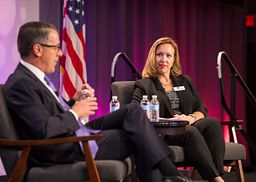Recognizing Juneteenth in PA Education
Observances for Juneteenth, or Jubilee Day, began in 1866, a year after news of the end of the Civil War (and two years after the Emancipation Proclamation) and slavery reached Texas. Previously enslaved Black communities celebrated their emancipation and used these celebrations to commit to community and civic engagement. These celebrations began in east Texas but quickly spread to central Texas, Louisiana, Arkansas, and Oklahoma.
Juneteenth is not just a day without work or class, but rather it is an opportunity for PA programs to discuss how our nation’s political climate affects the health and well-being of our patients, colleagues, and students.
Juneteenth celebrations were popular within many Black communities across the country until the Red Summer of 1919 when racial violence occurred against Black communities in over 26 cities across the United States. During this period, many Black men returned home after fighting for this country in World War I; at the same time, the celebration of Juneteenth was deemed “unpatriotic” and declined in popularity.
I was born and raised in Omaha, Nebraska and Juneteenth was not recognized by the state during my childhood. However, the holiday was observed within the Black community, as there are many Black Nebraskans with southern roots due to the Great Migration, including my own (Oklahoma, Louisiana, and Arkansas). Thanks to the genealogy sleuthing of my younger sister, Juneteenth means even more after learning about our family’s extended paternal lineage. My great-great-great-great grandfather was enslaved in Rutherford County, Tennessee, a short drive from my office at Meharry Medical College. He was sold and moved to central Texas in 1847. After his emancipation, he founded the town of Forks of the Creek (present day Pelham), Texas in 1866, the same year as the first documented Juneteenth celebrations. Remarkably, it is the first Black community in Texas with a historic marker and where members of my extended family live.
Juneteenth is not just a day without work or class, but rather it is an opportunity for PA programs to discuss how our nation’s political climate affects the health and well-being of our patients, colleagues, and students. This holiday is a reminder that descendants of enslaved Africans had to wait on full citizenship and acknowledgement of their humanity. The disparities we see in medicine, both pre-pandemic and through the pandemic, are the result of the processes, systems, institutions, and individual actions that cause barriers for Black Americans to receive equitable health care. Disparities are not due to race (which is a poor proxy to genetics, of which there is no gene for race) but rather due to racism.
As PA educators and clinicians, it is our duty to address racism and the impact it has on patients; deconstruct and challenge clinical evidence, algorithms, and treatment plans built on racist ideology; and rebuild health care education and health care delivery that is inclusive, compassionate, and foundationally sound so that we can achieve Health for All.




